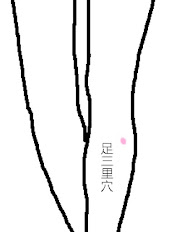If you google the “fifth estate”, you most likely get two kinds of results, one is the movie “The Fifth Estate” – story of the WikiLeak, the other is a socio-cultural reference to groups of outlier viewpoints in contemporary society, and is most associated with bloggers, journalists publishing in non-mainstream media outlets and the social media (Wikipedia).
The movie was released back in 2013, so most recent references
are about the latter, not the former. To start, let’s look at the 1st, 2nd,
3rd, and 4th estate.
The first three estates could reference to estates of the realm from social hierarchy in Christian Europe from the middle ages to early modern Europe where the society was made up of clergy (the First Estate), nobles (Second Estate), peasants and bourgeoisie (Third Estate). Another reference is the modern separation of powers in government into the legislature, administration, and the judiciary. Anyhow, these three were less discussed after the rise of the fourth estate where it refers to forces outside the established power structure, most commonly in reference to the independent press or the mass media.
Apparently the fourth estate is not doing a good job in the recent years, so here comes the fifth to make up for what’s missing.
在台灣,電影The
Fifth Estate 被翻成《危機解密》(取其同音《維基解密》)
,所以不知道有多少人知道“第五權” 這名詞。台灣大多數的電影都是四個字的名字,大部分我都無法跟電影主題聯想在一起。
如果你搜尋“第五權”,你很可能會得到這個結果:”一個由西班牙記者伊格納西奧·拉莫內特所創的詞語,作為孟德斯鳩三權分立及第四權大眾傳播媒介的延續。第五權一般可指經濟體系或互聯網。”(Wikiwand)
也難怪在台灣這名詞“第五權”用的不多。好在各類媒體相對自由,要聽到對當代社會異樣的觀點和非主流的聲音還是可以的。可惜的是一般大眾不見得會深入思考一些議題罷了。在香港似乎就比較不同,媒體(第四權)和網民監察(第五權)是清楚定義的。人民對第五權的使用反映了一個國家的自由度,而不是夜市小吃有多少多好吃。
















